Space
Sign up for our newsletter
We summarize the week's scientific breakthroughs every Thursday.
-
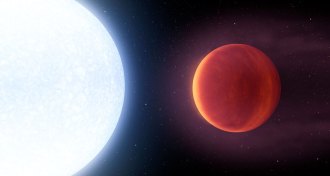 Astronomy
AstronomyScalding hot gas giant breaks heat records
KELT 9b’s sun blasts it with so much radiation that the planet’s dayside is hotter than most stars and its atmosphere is being stripped away.
-
 Physics
PhysicsLIGO snags another set of gravitational waves
Two black holes stirred up the third set of gravitational waves ever detected.
-
 Particle Physics
Particle PhysicsReaders puzzled by proton’s properties
Readers sent feedback on under-ice greenhouses in the Arctic, the Martian atmosphere and more.
-
 Planetary Science
Planetary ScienceWhy you can hear and see meteors at the same time
People can see and hear meteors simultaneously because of radio waves produced by the descending space rocks.
-
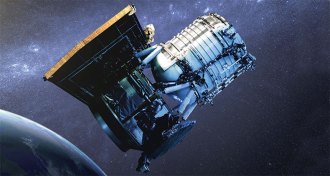 Planetary Science
Planetary ScienceCitizen scientists join the search for Planet 9
Backyard Worlds: Planet 9, a citizen science project, lets space enthusiasts search for undiscovered objects in the sky, including a hypothesized planet at the far reaches of the solar system.
-
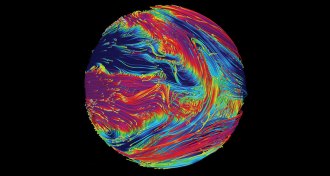 Astronomy
AstronomyMagnetism disrupts winds on ‘hot Jupiter’ exoplanet
Simulations of HAT-P 7b’s magnetic field give clues to why the exoplanet’s winds blow both east and west.
-
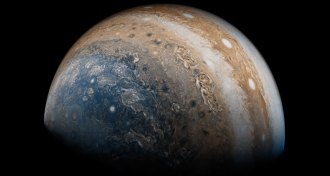 Planetary Science
Planetary ScienceJuno spacecraft reveals a more complex Jupiter
NASA’s Juno spacecraft has sent back unexpected details about Jupiter, giving scientists their first intimate look at the giant planet.
-
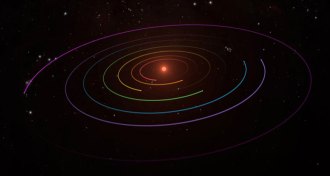 Planetary Science
Planetary ScienceTRAPPIST-1’s seventh planet is a chilly world
Follow-up observations of TRAPPIST-1 and its seven planets reveals details about the outermost one.
-
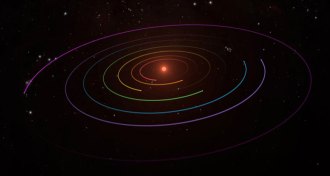 Planetary Science
Planetary ScienceTRAPPIST-1’s seventh planet is a chilly world
Follow-up observations of TRAPPIST-1 and its seven planets reveals details about the outermost one.
-
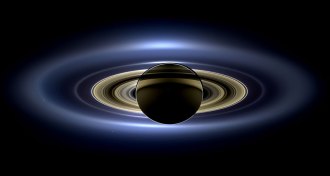 Planetary Science
Planetary Science50 years ago, an Earth-based telescope spotted Saturn’s fourth ring
Scientists now rely on spacecraft to chart the intricate rings of the gas giant.
-
 Health & Medicine
Health & MedicineReaders ponder the randomness of DNA errors
Readers sent feedback on cellular slip-ups, moon mayhem and more.
-
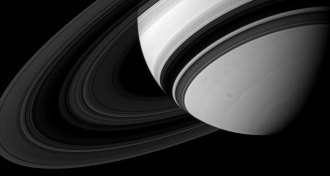 Science & Society
Science & SocietyThe first Cassini to explore Saturn was a person
Cassini, the spacecraft about to dive into Saturn, was named for the astronomical pioneer who first perceived the gap between the planet’s famous rings.